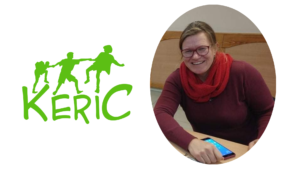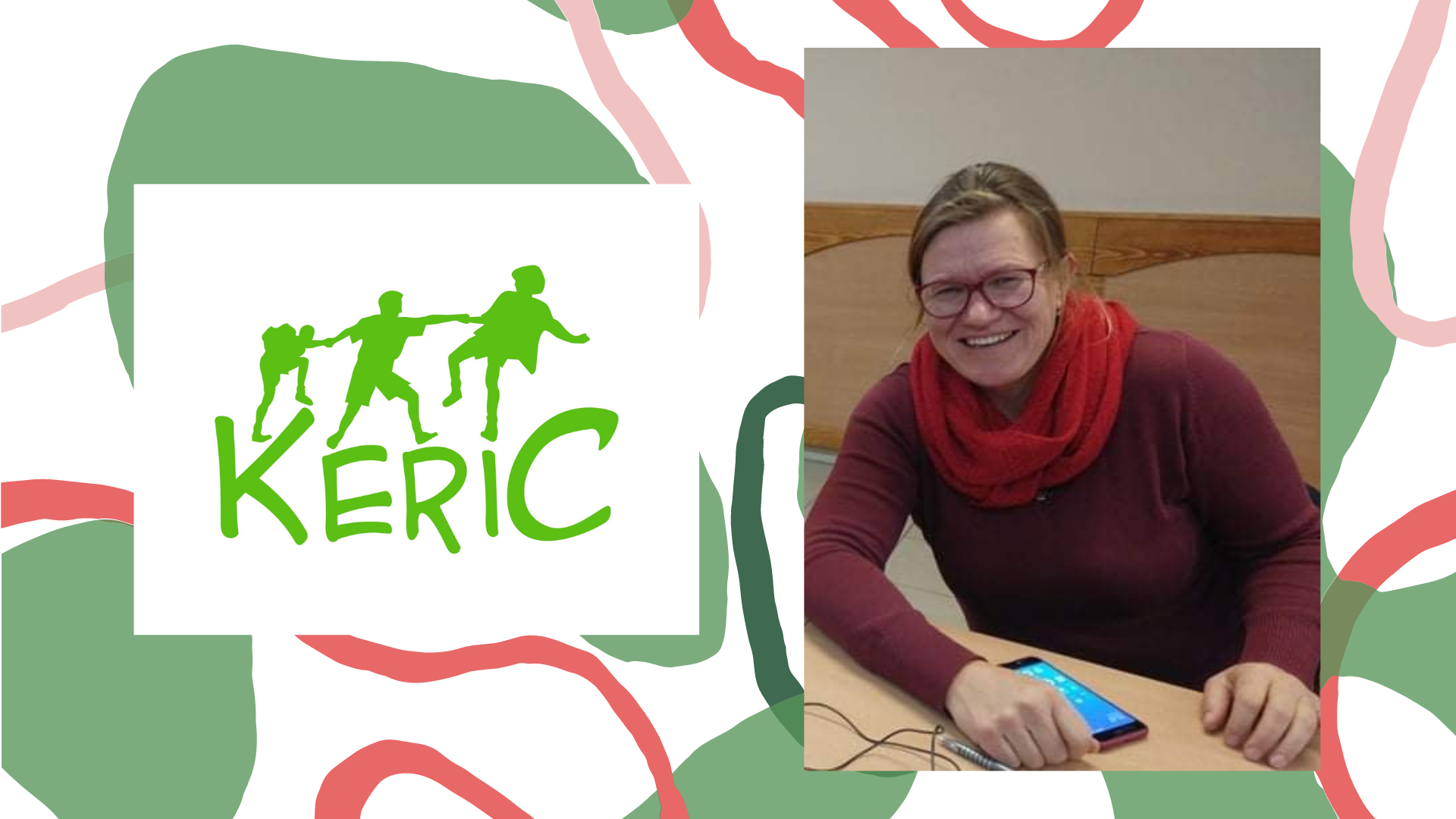In this series, we learn about volunteering opportunities within the ICYE network all over the world. This time it’s Sloavakia’s turn to be in the spotlight. Read what Miriam Petríková from ICYE Slovakia, KERIC, tells about volunteering with KERIC.
Interview & photo: Minna Räisänen

Miriam Petriková from the youth organization KERIC welcomes new volunteers to their team: “If you would like to be part of KERIC community, experience life in Slovakia, and like working with children, we are the right place for you.”
Could you please introduce KERIC?
KERIC is a non-profit, non-governmental youth organization that works with children and young people aged 7–30 years, and also with adults from the Kysuce region. We offer various activities with an international dimension, which develop the personality of children and young people and vary according to the needs of individuals and groups. We are trying to connect our Kysuce region with Europe and gradually with the whole world.
Dozens of young people take the opportunity to travel abroad and have unique experiences in countries around the world. Every year, volunteers visit us in Čadca to share their culture, customs, and languages through fun activities.
We send groups of young people from 13 to 30 years of age to the world for international youth exchanges. The aim is to meet young people from other countries, spend some time together, cooperate during activities and communicate together in a foreign language. In this informal way, young people gain new experiences, knowledge, and contacts.
We have been cooperating with primary and secondary schools in Kysuce for a long time. Throughout the school year, once or twice a week, volunteers from abroad attend schools and help motivate pupils and students, especially in foreign language classes.
In addition, we organize regular educational activities for local youth, such as workshops on engaging topics, webinars with guests, creative workshops for school clubs, and language courses for different age groups. We also host summer camps for children aged from 7 to 16. All of this allows young people to get to know themselves better and develop their potential.
What is the most rewarding and challenging aspect of your work?
We enjoy everything we do. We are constantly learning and adapting to new conditions. We try to supplement what is missing in society, and help people meet their needs. We create space for young people to express themselves and realize their ideas. We also discuss topics that are not much talked about in a creative and open way. Every obstacle brings us forward and so we grow together.
When it comes to forming connections via international volunteering, what kinds of connections has Keric gained through the European Solidarity Corps?
We have worked in the field of volunteering for almost twenty years. During this period we have established a lot of good partnerships and we try to maintain them. We had a strategy to visit the majority of the projects where we send volunteers and to have a personal experience with the host organization, people there and activities. Another strategy was to invite our project partners for study visits or seminars so that they could get to know our project personally.
The third way of staying in contact with our partners was created during the pandemic. We organize live streams with our partners through which they can introduce their projects. These interviews are recorded and candidates for the European Solidarity Corps projects can then watch them during the preparation period.
What kind of tasks do you offer for European Solidarity Corps volunteers? How has the cooperation with long-term ESC volunteers contributed to your work community?
The tasks of our volunteers are very diverse. Firstly, the volunteers help to run communication courses for children. They prepare and run the lessons together with a young Slovak teacher. The aim of the courses is to motivate children to speak English, experience the culture of the volunteer, and have fun while speaking English. The volunteers do not have to know English very well. Their role is to motivate the kids to speak a foreign language.
Secondly, the volunteers cooperate with one or two schools in Cadca or nearby villages. The aim of the cooperation is to add an international dimension to the schools. The volunteers help teachers during their lessons, using non-formal education tools. It can be language lessons but also sports, art, IT, science, math, etc. The volunteers organize games and creative activities with the students or support the teacher in any way needed. In some classes, the volunteer might help students who need special support due to a disability or other reason.
The volunteers are motivated to get involved in the school life – to take part in school trips, special events, sports tournaments, etc. The volunteers also hold classes for students to let them experience the culture, country, and the language of the volunteer, through methods of non formal education. The volunteers prepare their activities alone or with the support of the KERIC staff.
Thirdly, once a week, the volunteers help in running the KERIC office. This task involves everyday office tasks, paperwork, preparing leaflets about our activities, updating the KERIC website and Facebook, cleaning and taking care of the facilities in KERIC, or other little tasks depending on the needs of the organization.
The volunteers are part of the KERIC team. Their personalities, experiences and needs influence activities that we offer to our local community. They bring new international dimensions to our organization and the life of our community. During the first weeks, the volunteers are actively involved mainly in teaching. Later on, they may want to get more involved in other activities, such as sports, or social work. The volunteers can also take part in a language course of their own choice.
How has Keric adapted to the COVID-19 situation? How do you see the future of international volunteering in your organization, post-COVID-19?
The COVID-19 period was hard, but the challenges we faced developed our activities in positive ways. The pandemic affected three groups of our volunteers. The first group was affected on the second half of their project. We did our best to support the group’s team spirit. We created many new modules of education, started to apply distance learning, and did a lot of hiking in our region. We took it as a challenge and we were enthusiastic to study new tools and transfer our typical activities into an online space. We did many live streams and funny challenges online. I consider this period both challenging and inspiring.
When we started to host a new group of volunteers in September 2020, we tried to put our learning experiences from spring 2020 into use to develop further our educational activities. We created methodologies for online meetings, and planned how to educate our volunteers on using IT technologies to fulfill our aims in education. It was important to focus on the mental health of our volunteers and team members, so we continued with outdoor team building activities.
Now, we are hosting the third group of volunteers and I have a feeling that the pandemic is a part of our work, plans and life.
Your greetings to those interested in volunteering in Slovakia?
We really like our KERIC community. The challenges connected with hosting young people from different countries and with different skills, knowledge and experience lead our community to unexpected positive discoveries. If you would like to be part of this community, experience life in Slovakia, and like working with children, we are the right place for you.
This article has been extracted from Maailmanvaihto’s magazine Volunteers’ Voices 1/2022 edition with the theme of connections via international volunteering. You can find the full magazine and previous releases here.

